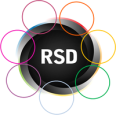When we interviewed graduates one year after they completed a three-year undergraduate degree in which there has been explicit development of their research skills, the graduates provide a rich array of context-specific descriptions of the skills associated with research. The contexts where we have interviewed include the diverse working environments of B. Media and B. Oral Health graduates, and the research labs of honours students in Medical Sciences.
The webinar on this topic was run 31 May, 2013, and the archive is available at https://fop-connect.adelaide.edu.au/p514u5saq9l/
(40 mins- audio, text and ppt).
Focusing on the first Facet of the Research Skill Dvelopment framework (www.rsd.edu.au) that was used to make the development of skills explicit in undergraduate degree programs:
Embark and Clarify: Respond to or initiate research and clarify or determine what knowledge is required, heeding ethical/cultural and social/team considerations.
In their working environments, graduates described this facet in such terms as:
‘determine what angle I was going to take with the story’
‘pick up their key inquiry and just work on that’
‘we’ll brainstorm some ideas’
‘my research is completely off my own design’
How students embark after completing their undergraduate degree depends on the working contexts in which they find themselves. For all, the point of embarkation on research is much like a voyage with destination not clear or certain.
In their undergraduate studies, whether the beginning is initiated by the educator, who sets tasks that require research processes, or instigated by students posing questions, hypotheses or aims, the point of embarkation is tricky and requires clarification. One graduate said: ‘But you know, the most difficult part is develop argument of question, which kind of research question you need to do.’
Like any voyage, research requires setting out, sailing on the seas of discovery, only to come to a new port, where once again stock is taken and re-embarking on the next stage of the voyage is necessary. In research we frequently come back to the ‘beginning’, the research question, hypothesis or purpose to clarify, fine tune and to ensure that we are really heading in the right direction. Embarking and re-embarking are difficult processes, vital if students and graduates are to employ successful research processes in their diverse contexts.
This does raise the questions: how often do students see embarking and clarifying modelled by educators? How often have they been able to practice ways to embark, and received feedback, in a variety of contexts? How often have students initiated research, with some scaffolding, so they can make mistakes, learn and see their research skills mature and the degree of rigour they apply to research processes soar?
One of the main mentalities of the Research Skill Development framework is that each of the six facets need to be fit to the nuances of context and discipline. Six semesters minimum of undergraduate study provide many potential contexts for encountering a diversity of approaches to embarking and clarifying. Likewise the other facets need to be simultaneously and mutually developed:
Find & Generate
Evaluate & Reflect
Organise & Manage
Analyse & Synthesise
Communicate & Apply ethically
The word ‘Facet’ is used for the RSD, as it implies six different but intersecting sides of the same jewel, difficult (impossible?) to separate one from the others. ‘Facet’ also suggests a non-linear process, where one or more facets may be emphasised, but all come into play at the same time.
In the webinar on the 31 May we will explore each of the facets, looking at graduates’ own descriptions:
https://fop-connect.adelaide.edu.au/rsd-project
(5am Universal Time)
Pre-empting that conversation, you might ‘comment’ on the ways that students employ each of the above facets of research in your context.

